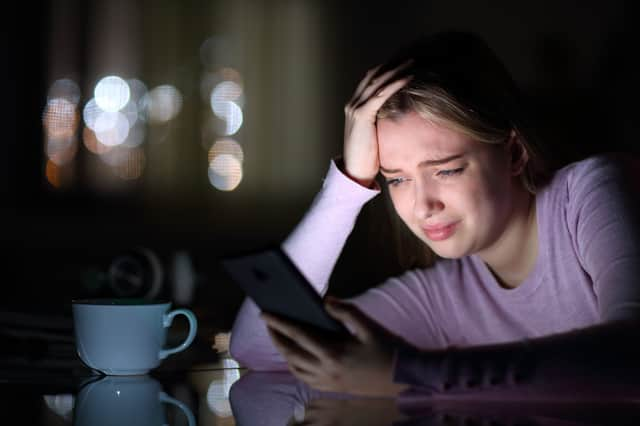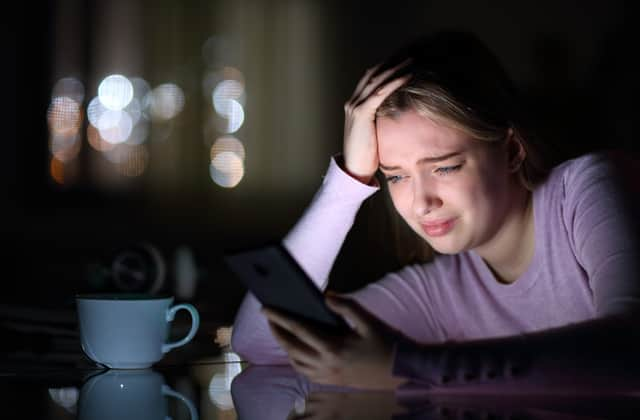Instagram users slam negative trend which makes people fear they'll have unlucky 2024 unless they do one thing


We're only a few days into 2024, and the first negative trend of the year has appeared. There's a new template circulating on Instagram Stories which has been criticised for evoking anxiety and negative emotions among users.
It builds on the tendency users have to share meaningful photos at the dawn of a new year, but it demands that individuals “post a random photo otherwise 2024 gonna be the unluckiest year of your life” via the 'add yours' button - and has been used by more than 570,000 accounts. While it may have been used by hundreds of thousands of accounts, it's all been called out by many more who claim that it puts pressure on people to share content, feeds off insecurities and causes widespread panic.
Advertisement
Hide AdAdvertisement
Hide AdIn retaliation, a second template has since been shared on the app slamming the original trend, with text reading: “I think we should really stop the ‘post this or bad month/year etc’ things. It’s so full of negative emotions and anxiety. “Why not start 2024 with a positive vibe? So… here’s an ‘add a picture from your camera roll that you really love. Just because you can!”
While the effort to counteract this negative 'unlucky' trend has been welcomed, it’s not the first template to use the threat of “bad luck” to make people post a photo or engage with a post on social media. One strange previous Instagram template told users to share a picture of themselves and their pet from five years ago, or allegedly risk a negative consequence.
Posts based on superstition have also circulated over the years on the most popular social media or communication app or website of the moment, be it email, MSN, Bebo, Myspace, Facebook, X or TikTok - so these scary demands are nothing new. It seems to be that the start of a new year also provides a prime time for these trends to be recycled year after year.


The trends have been slammed by mental health campaigners, including those with Obsessive Compulsive Disorder (OCD), who say the posts are “a huge trigger” for their a mental health condition where a person has obsessive thoughts and compulsive behaviours.
Advertisement
Hide AdAdvertisement
Hide AdIn an Instagram post, neurodivergent and chronically ill creator Sara Wessie wrote: “They make me painfully anxious, stressed and can lead to panic attacks. They also set off some at times really disturbing intrusive thoughts. The only reason I don’t share one every time I see it is the thought of putting someone else through this."
She also added that she didn't have an issue with encouraging people to post, but was worried about the threat of negativity. “It’s such a small thing, but the tags that ask you to share photos without the threat of negative reinforcement are easier to ignore – and actually fun and cute to do!”
A 'silly' and 'dumb' trend
Meanwhile, Instagram account @jess.recoveryjourney recently posted: “Seemingly, as with anything that provides a chance to boost followers or profile engagement, it has become a clout chasing ‘trend’ that many of us with OCD (particularly those who struggle with magical thinking) dread seeing. It can leave us with the urge to delete social media or avoid it and whilst that may not seem like a ‘big deal’, it is very unfair and incredibly frustrating, even more so since it really could be prevented.
“Share, or don’t because a silly little Instagram trend cannot and will never be able to dictate the future. Not sharing whatever it may be is not going to cause anything bad to happen, I promise you. And if anything remotely negative was to happen, I can assure you that not performing this superstitious compulsion was most definitely not the reason.”
Advertisement
Hide AdAdvertisement
Hide AdMental health non-profit Made of Millionsalso highlighted the trend back in 2022, sharing a video to the platform which said: “It might seem necessary to repost in order to stay ‘safe’. In reality, it just promotes compulsive behaviours. Especially for people with magical thinking, a subset of OCD where you think your thoughts/actions have some sort of magical effect.
"It can involve ‘thought action fusion’, which is the false belief that simply thinking about a thought makes it more likely to happen. While it seems harmless to give into compulsions like knocking on wood or reposting bad luck chains, it’s important that you don’t feed into the obsessive compulsive cycle."
Social media users have had mixed reviews to the trend. One person said they didn't believe the idea of a curse unless they did it but took part anyway because of FOMO (Fear Of Missing Out). Another person, however, said: "I am not taking the chances of ANYTHING ruining my year." Someone else called the trend "dumb", while another likened it to chain mail threats that were sent over a decade ago, including one from the early 2000s when people were pressured in to sending on a certain photo of their friends and family or they would be visited by 'scary Mary'.
Comment Guidelines
National World encourages reader discussion on our stories. User feedback, insights and back-and-forth exchanges add a rich layer of context to reporting. Please review our Community Guidelines before commenting.
